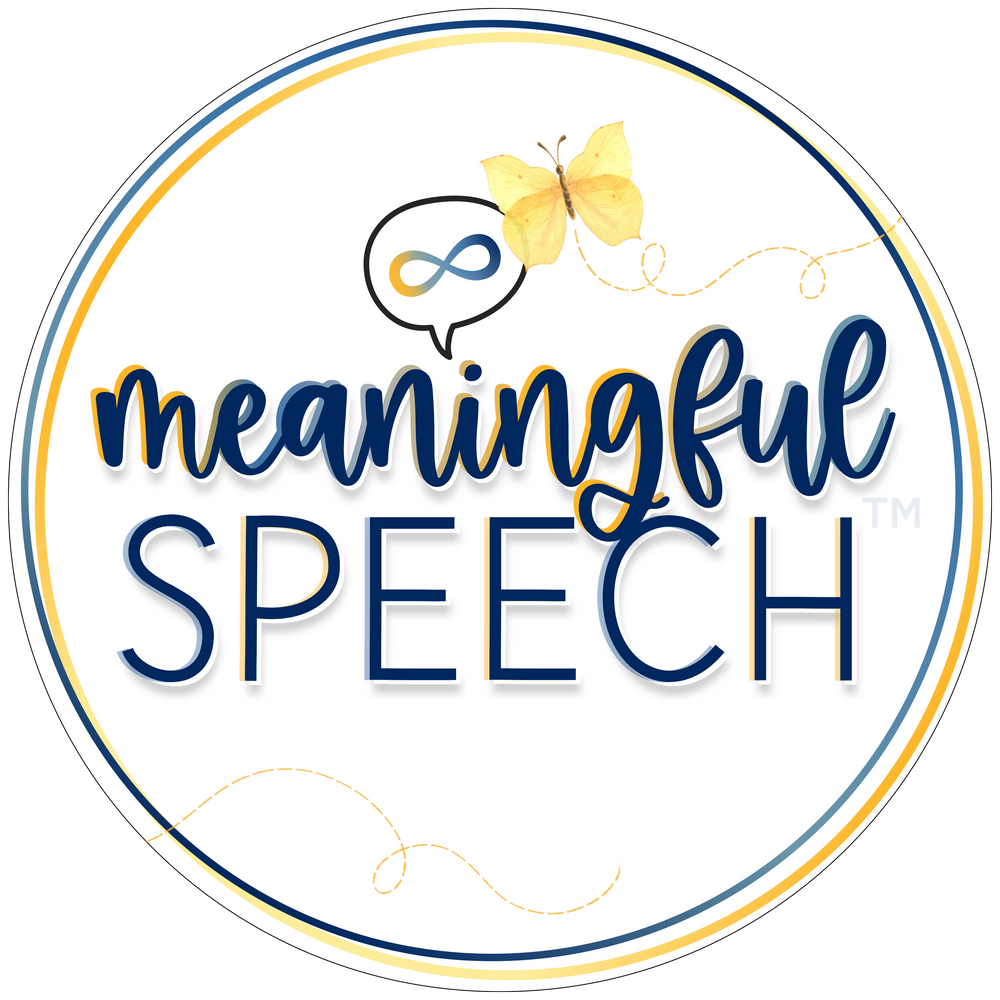Grammar & Early Stage Gestalt Language Processors
Oct 04, 2023
One of our most asked questions is about grammar and if we should be worried about it in the early stages of gestalt language development. The short answer is no. We should not correct or target grammar when a child is in Stages 1-3 of gestalt language development. We do not focus on grammar until a child is mainly self-generating phrases and sentences in Stages 4+ The most common grammar goals we see written for gestalt language processors in the early stages by well-meaning professionals are pronoun usage goals. Let’s look at why these goals might be written, and why we should avoid them.
What is pronoun reversal?
Pronoun reversal refers to when a child mixes up pronouns while communicating. They might refer to themselves in the third person (e.g. "he", "she", "they", or "you", etc.) or by their name. They may refer to others in the first person (e.g. “I”, “me”, “my”, etc. ).

Grammar & Early Stage GLPs
It is very common in the early stages of gestalt language development for it to seem like gestalt language processors are having difficulty with grammar. Pronouns tend to be the most obvious. However, gestalt language processors are just using language exactly how they originally heard it. This means they will use pronouns exactly how they’ve heard it. They do not recognize the individual meaning of these single words yet. Therefore they cannot switch out words within their gestalts to use correct pronouns. As Marge Blanc, speech-language pathologist and author of Natural Language Acquisition on The Autism Spectrum: The Journey from Echolalia to Self-Generated Language said, “When a kid picks up the entire gestalt (script) he’s got the pronoun of the original speaker. So ‘pronoun reversal’ is nothing more than that.”
How can we support early stage GLPs?
- Do not try to correct or target pronouns with gestalt language processors in Stages 1-3. We do not focus on grammar until Stages 4+ when a child is mainly self-generating phrases & sentences. In Stages 4-6, we’re modeling grammar targets for the child. We base these goals on the Developmental Sentence Types and Developmental Sentence Scoring which was created by Laura Lee. In stages 4-6 when a child is self-generating language we can also start to focus on “other” language goals like Wh-questions (asking and answering), problem solving, narratives and higher level thinking skills.
- Avoid pronouns “you” and “you’re” in the early stages. Instead, model language from the child’s perspective or a joint perspective. They will use language exactly how they’ve heard it. Example: Instead of saying “Are you thirsty?” you might say “I’m thirsty!” Or “Let’s get some water.”
Want to learn more in-depth information about how to support gestalt language processors?
-
- There are many free podcasts, webinars and articles to get you started. A comprehensive list of resources can also be found on our website and Communication Development Center's website.
- Consider taking the Meaningful Speech course to learn more about how your child or client processes language, how you can help support them from echolalia to self-generated (original flexible) language, child-led therapy, and neurodiversity-affirming practices. Looking for something shorter? We have a 1-hour introductory course perfect for extended family, daycare or school staff.
- Consider taking our AAC + Gestalt Language Processing course. It will teach you how to identify, evaluate and support gestalt language processors who use AAC or who you think might benefit from AAC.
- Look for a speech-language pathologist (SLP) who "gets it" and can help you in supporting your child's language development. Check out our registry for SLPs who understand gestalt language processing and child-led therapy.
- Are you a school-based or private practice clinician looking for intake forms for new clients/students or creative visual reminder posters for your space? Check out the Meaningful Speech Marketplace.
